Learning and knowledge sharing are fundamental to the LHSS Project. We invite you to search LHSS knowledge products and resources for the latest approaches, insights, and learning in the field of integrated health systems strengthening.
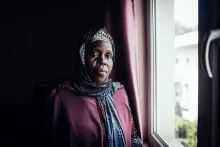
How can countries make progress towards good health budget execution? In this latest blog in our budget execution series, ministry of health practitioners from eight countries offer lessons based on their own experiences and shared learning.
LHSS conducted this rapid assessment to better understand the current and potential role of the private health sector in Jamaica's COVID-19 response.

Since vaccines became available in 2021, only 26 percent of Jamaicans have been vaccinated – a far cry from the country’s goal of 65 percent by March 2022. Religious communities were among the victims of the misinformation causing vaccine hesitancy, with many of the country’s Christians believing the vaccines represented “the mark of the beast.” In response, the government called on church leaders to play a more prominent role in the country’s vaccination effort.
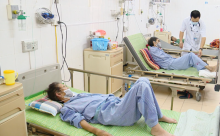
Vietnam is one of the 30 countries with the highest burden of TB and drug-resistant TB in the world, with more than 172,000 cases and 10,400 deaths from TB in Vietnam in 2020 (WHO). On July 1, TB treatment facilities nationwide started providing TB drugs to patients through social health insurance, marking an important milestone for financial sustainability.
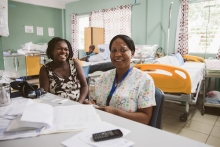
The learning exchange is hosted by LHSS in partnership with the Joint Learning Network for Universal Health Coverage (JLN). This offering is open to JLN and non-JLN countries. Applications are due July 15, 2022.
This report presents findings from LHSS Vietnam's international review of diagnosis-related group contracts and provides a series of evaluations and recommendations.
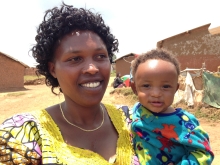
Through an LHSS-Joint Learning Network learning exchange, health practitioners from seven countries are sharing successful experiences and promising practices to institutionalize explicit national priority-setting processes for health. The goal? To help countries set equitable national health priorities and ensure that these priorities are reflected in national health plans and budgets.
This Spanish-language document describes findings regarding trends in information and misconceptions regarding COVID-19 vaccination in Colombia and the development of a communications strategy to promote vaccination in prioritized regions focused on increasing community trust in the vaccination process.
This Spanish-language document describes a tool to enable the Colombia Ministry of Health and Social Protection and health secretariats to monitor COVID-19 vaccination and assess vaccination strategies with a focus on rural areas and vulnerable populations.
This Spanish-language document describes the training strategy implemented to increase health workers' and community leaders' knowledge about COVID-19 vaccine supply and demand in Colombia and promote dissemination of information about vaccination using approaches tailored to their communities.

Both Ghana and Bangladesh have implemented health budget accountability mechanisms. Their experiences offer practical lessons that other countries can adapt to their own budget execution needs.
This rapid assessment aimed to determine which health facilities in seven high-TB burden provinces of Vietnam meet social health insurance (SHI) requirements for TB service provision and for reimbursement of TB services through the SHI scheme.
This report provides a review of international experience to draw out practical and scientific approaches for both the Ministry of Health (MOH) and Vietnam Social Security (VSS) to consider. Conclusions and recommendations are provided.
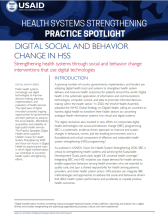
This brief explores ways in which digital tools and systems can be used successfully and responsibly to advance SBC interventions in support of health system strengthening, and provides recommendations for future programming and areas of research.
The Social Protection Monitoring and Evaluation (M&E) Mechanism in Cambodia contributes to reducing poverty, vulnerability, and inequality by promoting and enhancing the effectiveness of the implementation of the National Social Protection Policy Framework (NSPPF).
